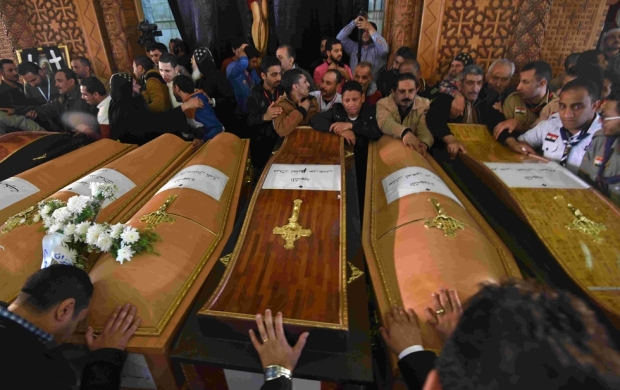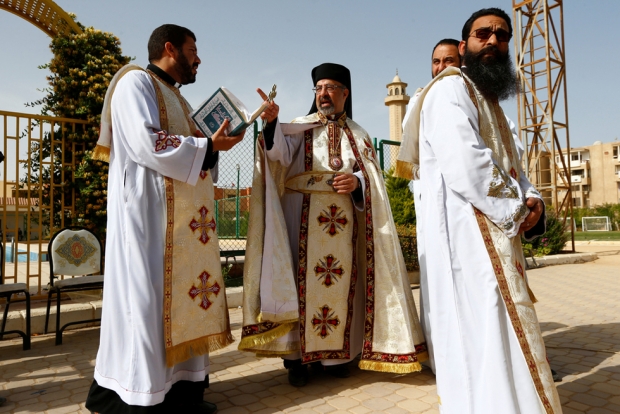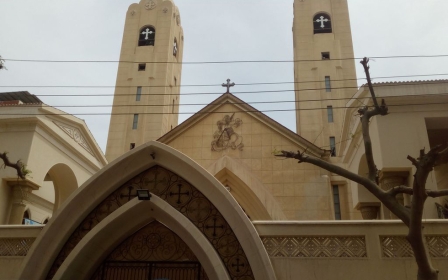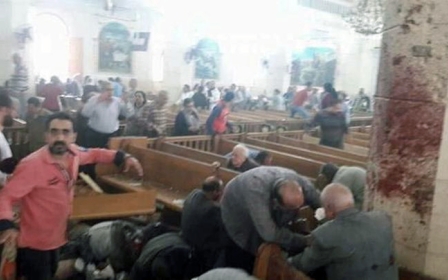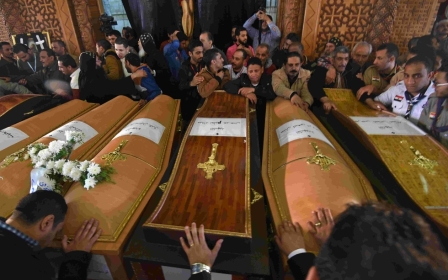Pope Francis, in Egypt, urges ‘unity and fraternity’ after Islamic State attacks
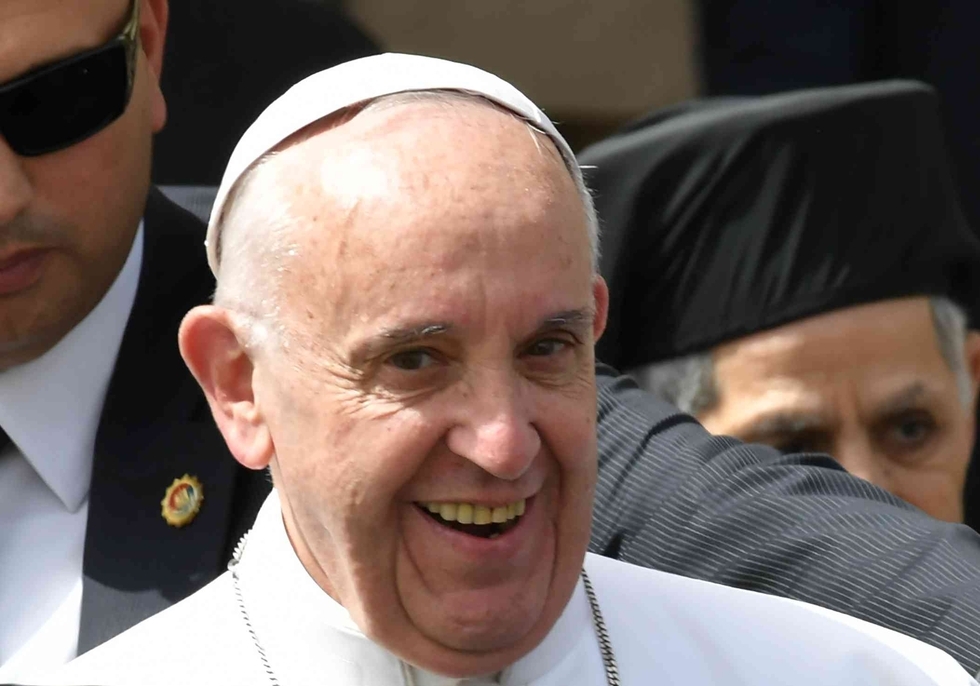
Pope Francis on Friday attended a service in an Egyptian church bombed by the Islamic State (IS) group in December, on a trip to Cairo to promote tolerance.
Francis joined a procession from the nearby headquarters of Coptic Pope Tawadros II to the Saint Peter and Saint Paul church, where a suicide bomber killed 29 people in the 11 December attack.
Francis was led by church members bearing standards with the portrait of Jesus Christ.
Inside the church, Francis sat alongside Tawadros and priests, holding books as a chorus sang hymns to clashing cymbals.
The 11 December attack was followed by twin church bombings in Egypt in April, also claimed by IS, that killed 45 people.
Francis, who on Friday started a two-day visit, has said he hoped his trip would contribute to dialogue with Muslims and show support for Egypt's Coptic Christians.
The Copts, about 10 percent of Egypt's population of more than 90 million, have suffered a series of sectarian attacks in recent years.
Arriving at Cairo International Airport earlier in the day, Francis said: "It's a journey of unity and fraternity. Less than two days but very intense." He then headed to meet Egyptian President Abdel Fattah al-Sisi, who welcomed him with a military brass band and a line of priests.
In an address to the Egyptian people earlier this week, Francis spoke of his hope that his visit would help bring peace and encourage dialogue and reconciliation with the Islamic world.
Despite the security threat hanging over Francis' visit, the pope will use an ordinary car during his 27 hours in Cairo, continuing his practice of shunning armoured limousines to be closer to people.
Police and soldiers stood guard outside the Vatican residence in Cairo and pedestrians were not allowed to linger. Armoured cars were stationed outside the Coptic Orthodox Saint Mark's Cathedral.
All of Egypt's churches have been placed under additional protection because of the risk of another assault timed to coincide with Francis being in the country.
"After all the pain we have experienced, we are satisfied and confident that the state is taking strong security measures to prevent terrorism and protect churches," said Father Boulos Halim, spokesman of the Coptic Orthodox church to which the majority of Egypt's Christians belong.
Strained relations
The last papal visit to Egypt was in February 2000 by John Paul II. Apart from Sisi, the pope will meet Sheikh Ahmed al-Tayeb, the Grand Imam of al-Azhar, the world's most influential seat of Sunni Islamic theology and learning; and Pope Tawadros II, head of the Coptic Orthodox Church who narrowly escaped a church bombing in Alexandria on Palm Sunday.
The pope is expected to give his key address to a conference on religious dialogue at al-Azhar, part of efforts to improve relations with the 1,000-year-old centre after Egyptian Muslim leaders cut ties in 2011 over what they said were repeated insults against Islam by Pope Benedict.
Ties were restored last year after Tayeb visited the Vatican. Tayeb, widely considered among the most moderate clerics in Egypt, has condemned Islamic State and its practice of declaring others as apostates and infidels as a pretext for waging violent jihad.
Tayeb is under fire over the slow pace of reform at Azhar, which critics in Egypt's parliament and media accuse of failing to combat the religious foundations of Islamist extremism.
Reynolds was one of 15 Catholics who took part in a dialogue on religious extremism with Muslim counterparts in Cairo in February.
Pope Francis will celebrate a Mass in a military stadium on Saturday, the last of a two-day visit to Cairo.
Middle East Eye propose une couverture et une analyse indépendantes et incomparables du Moyen-Orient, de l’Afrique du Nord et d’autres régions du monde. Pour en savoir plus sur la reprise de ce contenu et les frais qui s’appliquent, veuillez remplir ce formulaire [en anglais]. Pour en savoir plus sur MEE, cliquez ici [en anglais].


